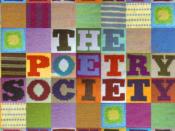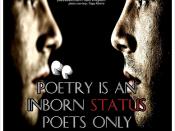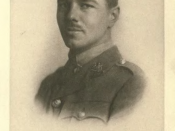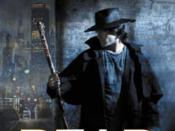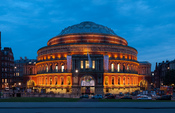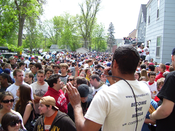The first thing, which strikes the reader is that, both poems are about war, 'The Dead-Beat' being about the First World War (this can be figured out by the word 'Hun' used to describe German soldiers in the First World War) and the second poem is obviously about Vietnam.
The first poem goes into detail about a certain even in the course of the war, however the second poem is really one about the futility of war, but it has a few war scenario descriptions. 'The Dead-Beat' is written in a much more melancholy tone, especially in the first paragraph; 'He dropped, - more sullenly than wearily' and 'blinked at my revolver, blearily'. Both quotations give the impression of a soldier unable to carry on with his duties and not caring about the trouble he my get into because of it (the revolver is his commanding officers who is trying to 'persuade' the soldier to move on).
The first stanza is written as if this soldier, this dead-beat, does not even understand that there is a war carrying on around him; 'Didn't appear to know that a war was on', however the tone of the second poem is very different, even the first sentence of the first stanza; 'The spotlight had you covered' delivers a tone of fear and worry. However we have this reoccurring idea of 'the Albert Hall' through each stanza, this is where the idea of the futility of war is hinted at. Indeed the poet uses the idea of the soldiers rounds being blanks when he went to the Albert Hall (poets held an anti-war rally in the Albert Hall in the 1960's), as if to say that what they had done, or how many people they had killed for their cause or country didn't matter, war is war and it is a terrible thing.
To go back to the first poem, one major difference is that we have the voices of other people, not just the narration of the poet; this is where some of the tensest mood of the poem is created. Through the poem we have been lead to believe that this dead-beat does not care about anything else, but in the last stanza another soldier from the same company/platoon says; ' That scum you sent last night soon died. Hooray!' to be happy at the death of your enemy is bad enough, but to cheer at the fact that a fellow soldier is dead amazes the human mind to the point of disbelieve. The mood that this last part of the poem creates is one of fear that people could have actually acted like that. However, when reading it through a second time, I found myself understanding why people would or could have acted in this way. This Dead-Beat was holding up the rest of his team, the slowest, unless member of the group, when you think like this you realize how well Owen (the poet) has created an atmosphere of war time, as normally you would never think like this.
When reading the second poem, especially when after reading the first a few times, you may actually begin to feel a little bad for thinking such things. For example the idea of 'you wear suffering like a service medal' gives the impression that after the war, you still have the terrible memories of the past.
I feel that both poems actually try to get over the same idea, that war is a terrible thing, but both do this in different ways, the first by giving you an example of what could actually happen to you, and the second poem reminds us of the futility and uselessness of war by such terms as; but all your cartridges were blanks when you were at the Albert Hall. The first poem does it in a much more subtle way, but when the ideas or pondered over can hit home their point of view, the second poem is much easier to understand and the imagery is much more obvious, therefore if I had to choose one, it would be the first.
